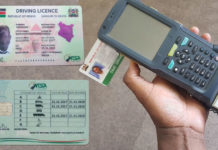Online car con-men have found a new way of scamming online car shoppers out of thousands of dollars: Posing as legitimate dealerships, crooks set up fraudulent look-alike websites that claim to be selling vehicles at bargain prices.
Scammers have been busy creating websites that appear to be run by established car dealerships offering repossessed cars at rock-bottom prices, but it’s only a scam to make unwary consumers part with their money, the Better Business Bureau says.
In the most recent scenario, the scammers use the name, location and other pertinent data from established car dealerships to convince shoppers that the deals offered are legitimate. Buyers are then instructed to wire a deposit to an individual rather than the company, which according to the phony website, “helps us avoid taxes legally.” Once the deposit is received, the buyer is supposed to receive the car at his address within five days and pay the balance due. The Better Business Bureau reported this dealer scam in Colorado, Florida, Georgia, Michigan, New Mexico and Texas.
You are asked for a wired deposit of up to $5,000 to reserve a hugely discounted car. Send the money to a dealership salesperson rather than the business itself, you’re told: This lets you avoid paying taxes on the purchase. But when you arrive at the authentic dealership to claim the car and pay the balance, you discover you’ve been taken for a ride: There is no car. And no way to get your money back.
So far, these rip-off websites have masqueraded as the sites of legit dealerships in at least eight states—Colorado, Florida, Georgia, Kentucky, Michigan, New Mexico, Tennessee and Texas. “Car shoppers will think that they’re buying a car from a reputable business,” says Stephen A. Cox, president of the Council of Better Business Bureaus, in a news release about the ploy. “The truth is, they’re being sold a bill of goods by a coordinated, agile and in all likelihood overseas outfit of scammers.”
Victims are steered to the fraudulent websites through Internet searches or advertisements in local car-selling publications, often fooled by look-alike website addresses: The scam site’s address may differ by just a letter or two from that of a real dealership’s site.
Two more car-sales scams
While repo deception is the latest car scam, there are other methods of targeting online car shoppers.
One involves Internet advertisements placed on Craigslist and other sale sites by “private sellers” who also request wire-transfer deposits or payment. Their incredible offers are often explained by a hard-luck story: The car needs to be sold right away because its owner is a soldier being deployed to Afghanistan or an unemployed single mother who needs quick cash.
Another variation involves phony escrow companies, which also may steal the names of legitimate businesses. After posting a vehicle for sale online, the scammer refers the buyer to an alleged third party that promises a safe online transaction by collecting the purchase money, again usually requesting a wire transfer.
Tips for online car shoppers
That said, there are always good Internet deals to be found on used cars, and most websites promoting these car deals are legitimate. Here are some tips for protecting yourself when buying a car online. If you’re shopping for a car online, here’s how to protect yourself:
- Use the phone. A sure sign of a scam is a “seller” who communicates only by e-mail. You should insist on a phone number to establish a seller’s legitimacy (you can go to online phone directories to cross-check a number the seller provides you). Any overseas number will be a sure sign of a rip-off.
- See and touch the vehicle. Before you buy, insist on a test drive and an inspection by a mechanic.
- Be realistic about price. Sure, there are deals in a tough economy, but for a reality check on what particular car models sell for, visit edmunds.com, .kbb.com or truecar.com.
- Never, never pay with a wire transfer. Legit dealerships don’t request them. Scammers do, because once you provide the confirmation number, a Western Union or MoneyGram transfer can be picked up anywhere in the world—no matter where you think you’re sending it. Wire transfers claimed abroad are untouchable by U.S. law enforcement.
- Do business only with reputable companies. If it’s an Internet-only business, shop only on those that are well-known, such as eBay.com and AutoTrader.com. If the business claims to have a brick-and-mortar dealership, then look up the phone number of the store on your own — not the one on the website, which may be part of the scam — and call the dealership to ask about the car you want. In the most recent scam, the legitimate dealerships knew nothing of the website when shoppers called.
- Confirm the car’s details. Ask for the car’s vehicle identification number, or VIN, and order a vehicle history report from Carfax.com or AutoCheck.com. Enter the VIN in the National Insurance Crime Bureau’s VIN Check to see if it’s a salvage car, or a car that has been damaged and is no longer road worthy. If you can inspect the car yourself before buying or even before putting down a deposit, do so. Hire a professional mechanic to inspect the car as well.
- Choose the escrow company. If you opt to move forward with the purchase, be wary of any sellers that require you to use a specific escrow company. Choose an escrow service that is well-established and make sure you verify that it’s licensed. Be cautious when following links from the seller’s website or e-mail correspondence, since those links could appear legitimate but actually direct you to another site that is part of the scam.
- Conduct an Internet search for any escrow companies suggested by the seller, looking for any complaints. Review the company’s website thoroughly to see its fees and details of its services, and make sure it matches what the seller claims. Escrow services never direct you to use a personal money transfer service such as Western Union. Don’t give out your personal finance information such as your bank routing number until you’ve verified the escrow company.
- You can avoid a lot of these hassles from the start by dealing only through established online car-sale sites such as Kenyacarbazaar.com, tradecarview.com, autotrader.com or vehix.com, or by carefully typing the website address of a local dealership that you trust.
Read more: http://www.thirdage.com/budgeting-bargains/repossessed-car-scams#ixzz0x7tzBO4C










![[PHOTOS] Top 20 Used Cars to Avoid Buying in Kenya](../../../blog/wp-content/uploads/2013/11/top-used-unreliable-cars-to-avoid2-100x70.jpg)





